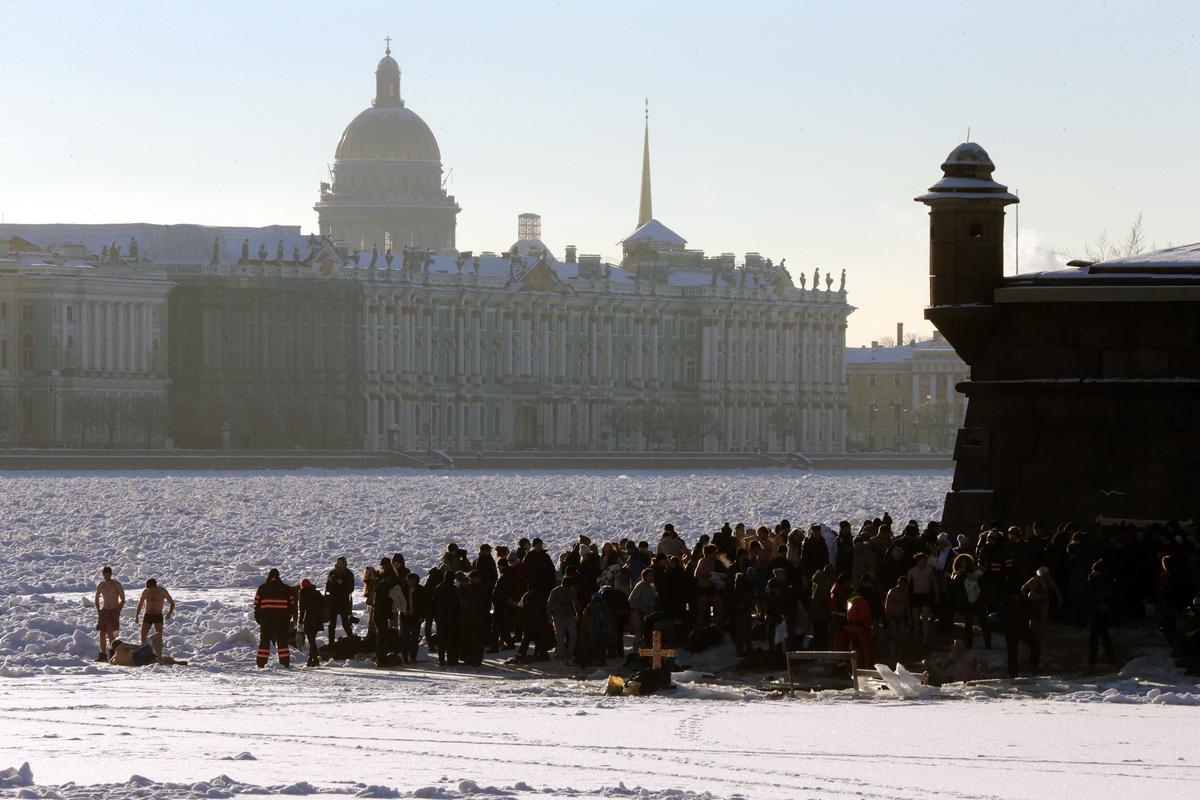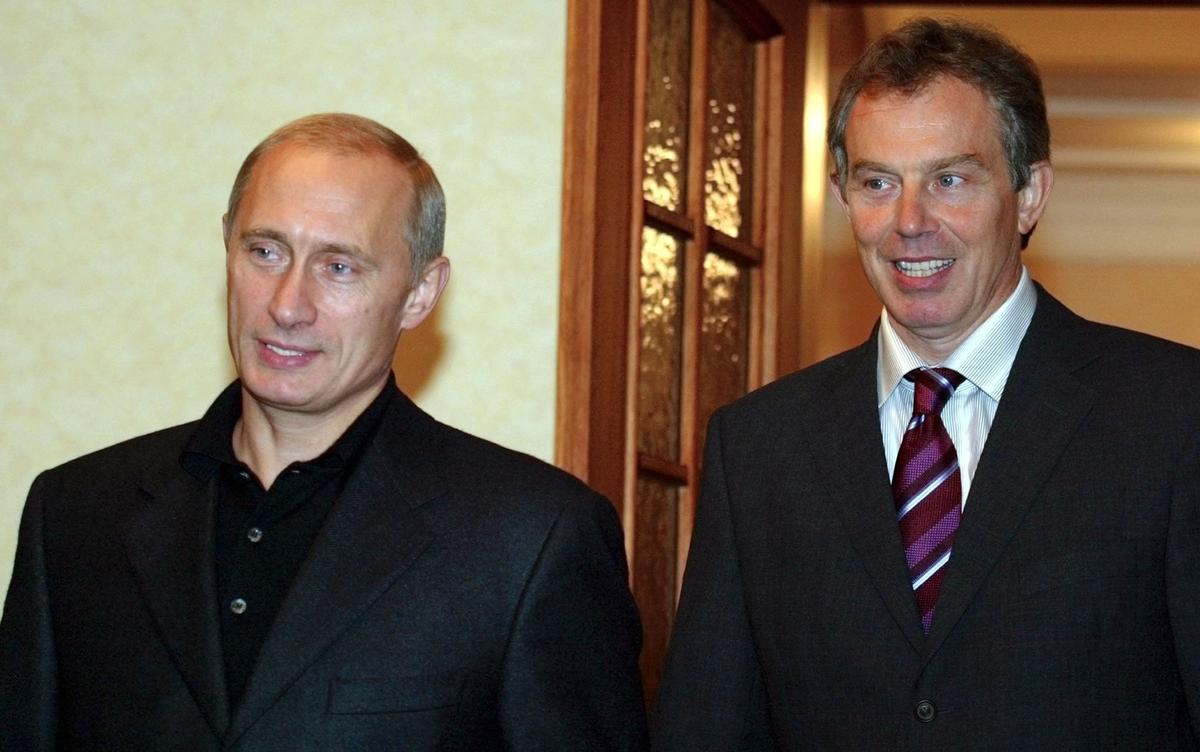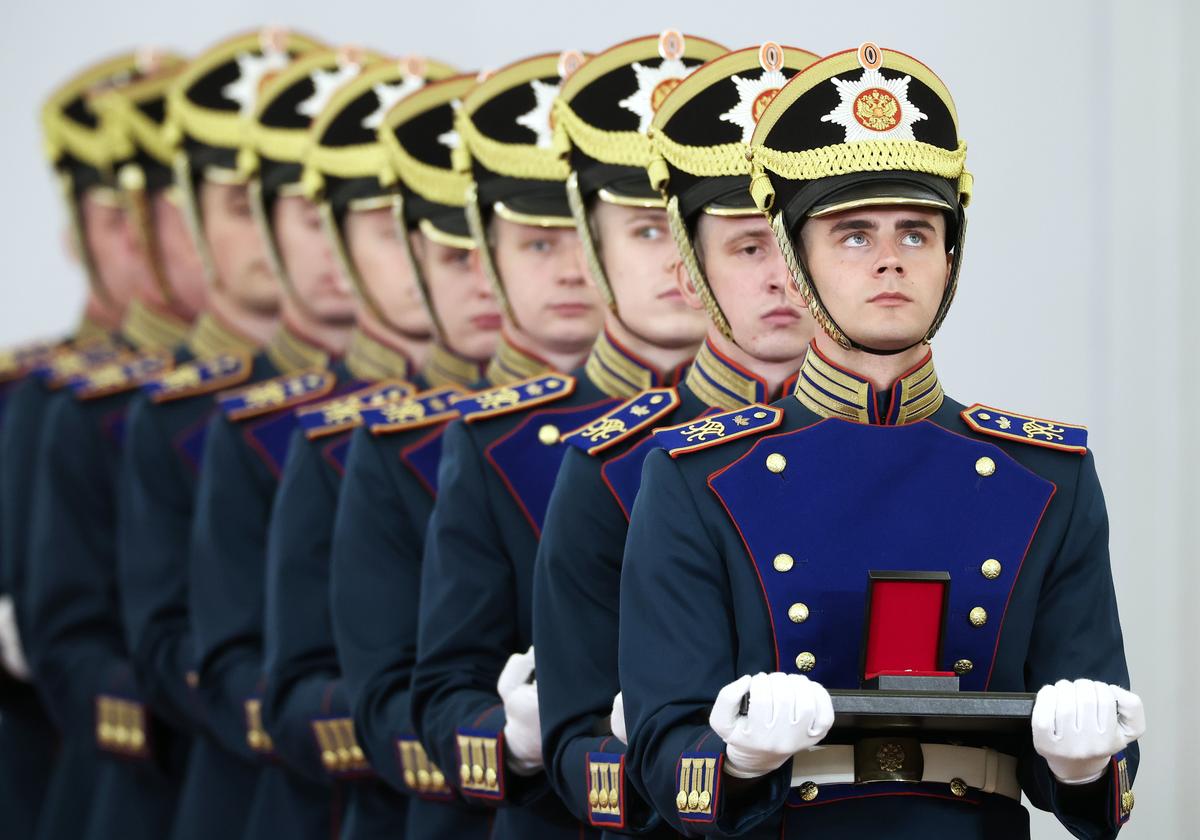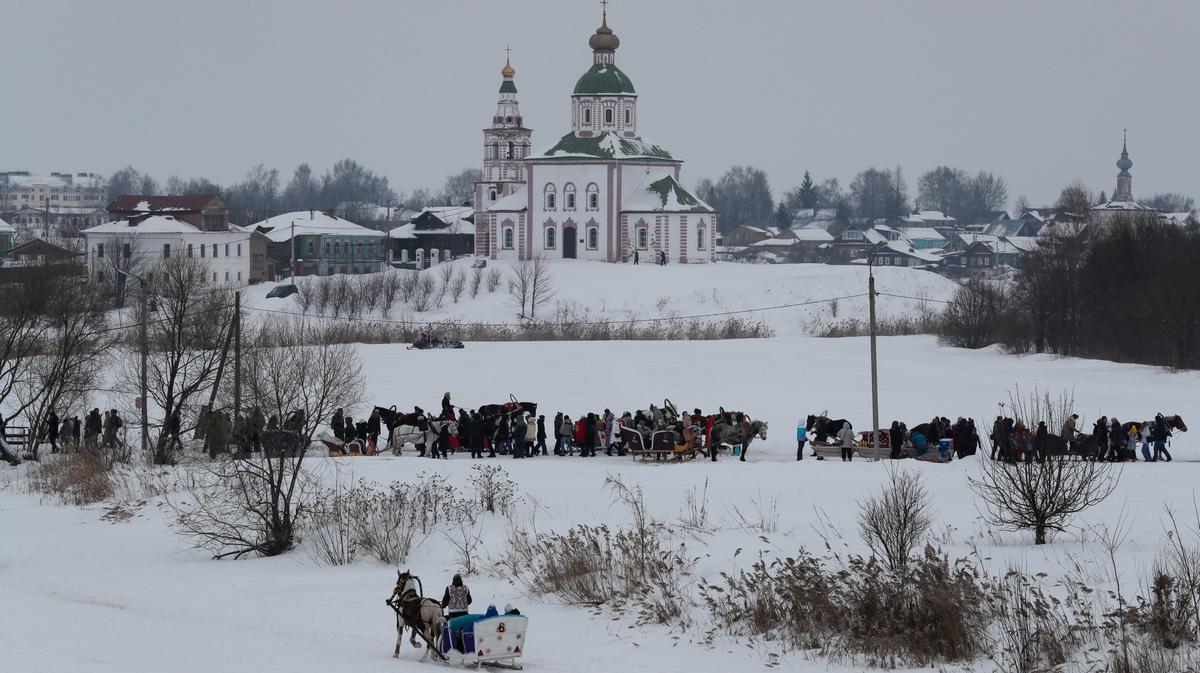Modern Russia’s relative youth means that it’s very much still in the process of determining what its true values and traditions are, sorting through a landscape crowded by those inherited by decree from the country’s communist and imperial past. As such, it’s perhaps unsurprising that the term “traditional values” is now often used ironically or placed in quotation marks. Did Russia ever have a chance of getting normal traditionalism right? And why does the vision espoused by Putinism cause such bewilderment among real conservatives?
Tradition vs the market
Dealing with the past was hardly a priority for the authorities in Russia’s first post-Soviet years. Reformers were betting on market individualism, seeing citizens as sovereign consumers. The Thatcher-style there’s-no-such-thing-as-society approach might have worked in a state with strong political institutions and social harmony, but that definitely wasn’t the case in the new Russia, which soon became the stamping ground of Orthodox criminals, National Bolsheviks, communists teaming up with far-right extremists and conservative liberals from the centre-right Democratic Choice of Russia party, all of whom called themselves traditionalists.
Former Communist Party functionaries and KGB servicemen kept their jobs, with then-President Boris Yeltsin even protecting the latter from an angry mob gathered outside the Lubyanka in August 1991.
Attempts by individual politicians such as Galina Starovoytova to promote lustration bills that would ban previous Party members from holding public office garnered little support, and for the most part those rare occasions in which the authorities confronted the past were purely ceremonial in nature, such as the 1998 reburial of the Romanovs in St. Petersburg.
From the point of view of classical Western conservatism, this lack of direction inflicted severe early trauma on the country. Classic European traditionalists of different eras, from Edmund Burke to Gustave Le Bon and Roger Scruton, have always set themselves apart from liberal thinkers by rejecting the concept of the state as a “night watchman”, viewing its function as limited to protecting the rights of the individual and personal property, and even in such cases, only actively stepping in when absolutely necessary.
More than any previous Russian leader, Putin has used the defence of Russia’s “traditional values” to justify political repression at home and military interventionism abroad.
For the European conservative, the state is a highly regulated entity whose powers are strictly limited, but one that is also inseparable from society, being the embodiment of its need for oversight. That oversight is carried out in accordance with existing customs and habits, rather than with utopian experimental theories.
According to this analysis, families, religious groups, neighbourly communities and other “little platoons”, as Burke called them, all endowed with “intuitive wisdom”, make up civil society, which in turn “hires” rulers to ensure stability. It does so on the understanding that the government will work on the principle of noblesse oblige, a commitment to decent behaviour that comes with an awareness of its ultimate accountability both to the people as a whole and the traditions that bind different generations together to form the bedrock of society.
Given that the Kremlin has never considered Russia to be a place of customs and traditions worth preserving, protecting or coordinating, the society being described is one that is a million miles from post-Soviet Russia.

Russian Orthodox believers mark Epiphany by taking a dip in the freezing Neva River, in the centre of St. Petersburg, 19 January 2014. Photo: EPA / ANATOLY MALTSEV
Russia’s post-Soviet government purposely avoided a public debate on the subject in the early 1990s for the simple reason that inviting discussion of who they were, where they came from, and where they were heading would have threatened their position. Boris Yeltsin was no Václav Havel or Lech Wałęsa, after all. His career — and the careers of most of those around him — didn’t begin with the end of communism, on the contrary, he had been a high-ranking Soviet official.
Had a collective reckoning led the country to an understanding that Soviet apparatchiks should be banned from public office, Yeltsin himself would have found himself excluded too, which is why, some believe, he refused to offer his support to Starovoytova’s campaign for lustration.
What, then, has changed in the quarter century since Vladimir Putin came to power? More than any previous leader of either the USSR or post-Soviet Russia, Putin has used and continues to use the defence of Russia’s “traditional values” to justify political repression at home and military interventionism abroad.
Conservatism as defence mechanism
When did Putin’s affair with “conservatism” begin? In the early 2000s, former British Prime Minister Tony Blair led efforts to extend an invitation to the new Russian president to join the “adults’ table” of world leaders.
“The first Putin I met was Western-facing, anxious to have a good relationship with the West,” Blair reasoned in a 2022 interview after the outbreak of war in Ukraine. “Then I think he found the challenges of reform and change in Russia too great and he decided to consolidate power in a more autocratic way and then become a Russian nationalist.”
Putin’s first two terms as president were quiet on the philosophical front, but a noticeable shift was evident after he and his prime minister, Dmitry Medvedev, swapped jobs for the second time and Putin began his third term as president in 2012.

Vladimir Putin and British Prime Minister Tony Blair at a government residence in Zavidovo, about 120 km northwest of Moscow 10 October 2002. Photo: EPA / ALEXANDER ZEMLIANICHENKO
Restored to the presidency, Putin’s conservatism made headlines in 2013, when he accused the West of moral relativism and called for the protection of “traditional values” and spiritual life during his annual address to the Federal Assembly. “This is, of course, a conservative position,” Putin said, generously peppering his speech with quotes from Russian philosopher and theologian Nikolay Berdyaev.
Russia’s lived experience during its so-called “lost decade” of 2012–2022, in which plentiful movement backward and downward was in evidence, completely contradicts the Berdyaev quote symbolically used by Putin to begin it: “The point of conservatism is not that it prevents movement forward and upward, but that it prevents movement backward and downward, into chaotic darkness and a return to a primitive state”.
Were Putin’s conservatism of the early 2010s in any way genuine, he would either have opted to accept the neoliberalism of the 1990s and its further iterations as a new but functional state tradition, or bring about a reckoning with the complex legacy of the country’s Soviet and imperial past.
But Putin preferred to destroy the few institutions created in the 1990s and replace openness and international integration with a neoimperialistic foreign policy implemented by soldiers wearing hammer and sickle insignia, and freedom of speech with censorship and propaganda. The state then took it upon itself to reshape its cultural and social life in accordance with its ideas on “traditional values”.
Refuge from neoliberalism
A list of traditional Russian values was approved by presidential decree in 2022, though it’s hard to identify most of them, which include dignity, respect for human rights and personal freedom, humanism, mercy and justice, in the everyday life of Russia’s contemporary dictatorship.
Indeed, Russia today is a country where people barely attend church, where eight out of 10 marriages end in divorce, where one Russian republic tortures gay people and declares blood feuds, where a ballistic missile strike on a neighbouring country is considered acceptable, and so on.

Russian honour guards at the Kremlin’s St George’s Hall in Moscow, 12 June 2024. Photo: EPA-EFE/VALERIY SHARIFULIN/KREMLIN/POOL
The very existence of this list makes a mockery of the idea that Putin is subject to any kind of “conservative bias”. Again, European conservatism would have us believe that civil society and its “little platoons” should be the source of traditional values, not the presidential administration.
Moreover, there are no “little platoons” in modern Russia, as the country’s innately Soviet leadership considers any civil association, from trade union to charity, a hostile body that must either be co-opted or destroyed by being labelled “undesirable” or a “foreign agent”. There can be no normal traditionalism without the “little platoons” so beloved of Burke and Tocqueville.
But Putin soldiers on regardless, and has been especially busy since 2022 contrasting Russia’s bastion of tradition with Western progressivism. This was most apparent in his August decree granting Russian residence permits to citizens of countries “imposing destructive neoliberal ideological attitudes that contradict traditional Russian spiritual and moral values”.
Russia today is a country where people barely attend church, where eight out of 10 marriages end in divorce, amd where a ballistic missile strike on a neighbouring country is considered acceptable.
Since the start of the war in Ukraine, the Kremlin has tried to convince the world at large that Russia is indeed a repository of traditionalism and Christian morality. It is important, therefore, that the invasion of Ukraine be presented to the ill-informed Western right not as an act of barbarism and a blatant violation of international law but rather as a holy war of genuine values against “liberal fascism”. If successful, it could radically affect support for Ukraine or sanctions against Russia.
The fact that the Russian authorities can convince anyone that this is the case via disinformation and propaganda suggests a global crisis within conservatism. Over the past decades, the concept has changed beyond all recognition, first gaining the prefix neo and becoming a doctrine that justifies surveillance of citizens and military invasions, advocating not for things, but against them: against migrants, against the LGBT community, against abortion.
“The cost of ill-conceived social experiments is sometimes beyond estimation,” Putin said at the Valdai International Discussion Club in Sochi in 2021. “Such actions can destroy not only the material, but also the spiritual foundations of human existence, leaving behind a moral decay upon which nothing can be built to replace it for a long time.” A shame, then, that as the last 25 years have shown, Putin clearly didn’t know what he was talking about.
Join us in rebuilding Novaya Gazeta Europe
The Russian government has banned independent media. We were forced to leave our country in order to keep doing our job, telling our readers about what is going on Russia, Ukraine and Europe.
We will continue fighting against warfare and dictatorship. We believe that freedom of speech is the most efficient antidote against tyranny. Support us financially to help us fight for peace and freedom.
By clicking the Support button, you agree to the processing of your personal data.
To cancel a regular donation, please write to [email protected]

